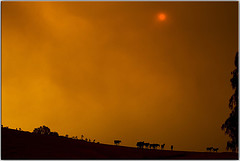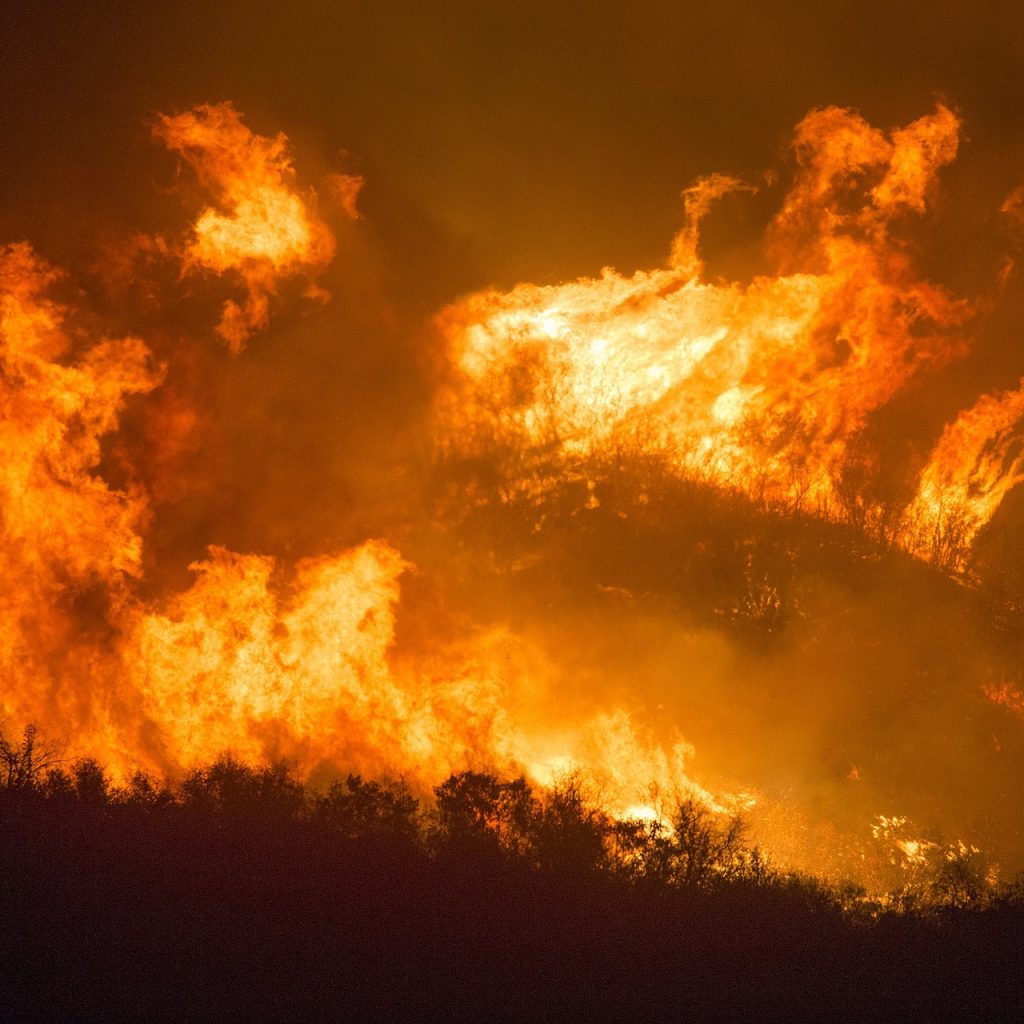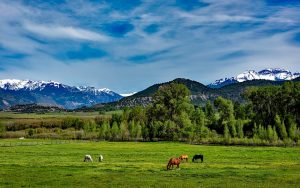
With the recent fire in Evergreen, residents of the Colorado Front range have received a stark reminder of the reality of living in a fire zone. Even those residents on the eastern plains of Colorado are under a possible fire threat this time of year. When you live in an area which is under a fire threat, a disaster/evacuation plan can mean the difference between getting out safely, and not getting out at all.

Disaster plans, including fire evacuation plans, should be well- thought out, and practiced so that they can be smoothly executed under stress and fear of a real disaster. Here are some thoughts and tips to keep in mind as you create a disaster plan.
Trailer Loading: Possibly the single most important aspect to any evacuation plan is trailer loading. Assure that your horses will load easily and quickly in ANY trailer. If you have been caught away from home and someone else is evacuating your animals for you, they may not be using your trailer. If not, will your horse load into a stock trailer? a small dark 2 horse? Practice is the only way to truly know the answers to these important questions.
Identification: The ability to identify your horse is extremely important. They will likely be housed at an evacuation facility with many other animals, and they may have been brought in and checked in by someone other than you or a family member. Making sure that you have photos of you with your horse, photos of identifying marks, brands, scars or tattoos is extremely helpful in making sure they are identified correctly. Also, in today’s digital age, be sure to have a photo of brand card, current coggins, and microchip paperwork. ( As a note, you should never keep these papers with your horse as it makes it easy for thieves to “claim” your animals!) In an emergency, duct tape on their neck, with names and phone number in sharpie works well. If your horse is being hauled with a halter, dog tags on the halter can help as well. IF you have to leave your horse behind, NEVER turn them loose while they are wearing a halter!!
First Aid Kit: Have a basic first aid kit that can be used in emergencies like colic, wound care, hoof/foot injuries in an easily accessible location that you can grab and go! If you need help with building a first aid kit, please reach out to your veterinarian for advice and proper supplies. Consult with your veterinarian to include basic medications such as Phenylbutazone (Bute) or Flunixin Meglumine (Banamine) pastes.
Tack: Plan on which tack you will take in an emergency, including halters, leads and water buckets. Redundancy may only cause clutter, frustration and confusion in a crisis. If there is ANY chance that you may trailer horses past fire, do not use nylon tack as it can melt and burn in extreme heat.

Have Redundant Back Up Plans: Use the help of neighbors and/or friends to get your horse out in case you are at work, on vacation, or otherwise not around when a fire starts. Have at least two other people who can come by with a trailer to load and evacuate your horses. Post detailed instructions in the barn area regarding where everything is so that backup helpers or emergency workers can quickly grab and go!
Feed: Keep a three-day supply of hay, feed, supplements, and medications ready to go.
Know your boarding stables’ emergency procedures: Knowing this information will make you an asset during an evacuation procedure, rather than a problem.
Shelter in Place: We have all become way too familiar with this term!!! This is a case where you are not able to get your horses out, and need to have a plan for them to shelter in place. NEVER leave them in a barn. They should shelter in a pasture where all vegetation has been removed with at least a 4-day supply of food and water. All horses should be properly identified and should not wear any halter. Halters on turned out horses can and do get caught and cause more problems than they solve.
Wildfires start unexpectedly and can move astonishingly quickly. The Elephant Butte Fire in Evergreen is a reminder of just how many people can be quickly affected by these catastrophes. The faster you can get yourself, your family, and your animals out of the way of a fire, the more the fire fighters can focus on the fire instead of worrying over human, animal and live saving issues!







No comment yet, add your voice below!